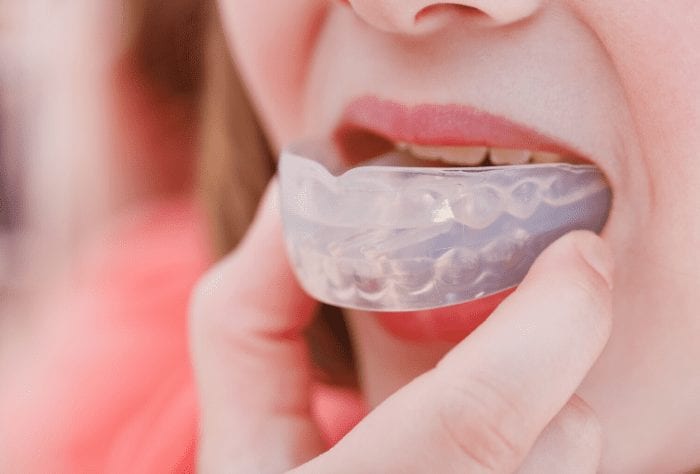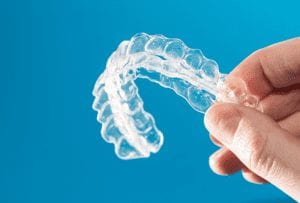Athletic Mouth guards
The use of mouth guards dates back to the early 20th century when it was introduced in boxing. About half a century later, in the early 1960s, it was introduced in high school football. Since then, its use has been recommended by the American Dental Association in close to 30 sports and exercise activities. Several factors determine the effectiveness of a mouth guard. They include: water absorption (indicates the stability and fit), strength (determines the longevity of its use), hardness/stiffness (indicates the protective capability), and shock-absorbing capability.
Athletes may sometimes feel invincible when executing difficult moves in their respective sports – able to duck punches, run at incredible speeds, or hit every pitch. However, accidents are prone to happen, and this applies to the rest of us as well. An inch of protection goes a long way in determining the severity of an accident. A properly fitted mouth guard not only prevents physical harm but also affects the overall mental wellness of the wearer. You become less anxious and hence reducing the risk of injury or pain.

Why do you need a mouth guard?
Orofacial injuries are also common in other sports, even those that have a low incidence of sports-related dental injuries, especially in children. A report from the National Survey of Children’s Oral Health stated that a significant percentage of American parents and guardians (almost 70%) allow their children to play without mouth guards.
Statistics from the National Youth Sports Foundation for the Prevention of Athletic Injuries suggest that there is a 10% probability of athletes sustaining dental or facial injuries every season. It also estimated that between 10% and 40% of all oral injuries are sports-related. Men suffer from oral trauma twice as much as women, with the incisors being the most common severely injured teeth. An athletic mouth guard redistributes the force of impact hence reducing the severity of the injury.
Every sport in the country focuses on injury preventive strategies – from rules, playing arenas to playing equipment like athletic mouth guards. The primary reason is the increased cases of sidelined professional players due to orofacial injuries. Sportsmen and women use athletic mouth guards to prevent oral trauma, especially in America’s dominant sports since the 19th century –baseball and basketball. The two sports record the highest number of children between ages 6 and 18 who have suffered oral injuries. Many stringent regulations have been implemented in sports for several decades, with mouth guards being a mandatory requirement since the 1960s in sports such as ice hockey, field hockey, lacrosse, and football.
 Who should wear mouth guards?
Who should wear mouth guards?
- Professional athletes who play contact sports such as hockey and boxing among others
- Children when playing sports or when engaging in other risky activities such as skateboarding
- People with mild physical conditions or habits such as grinding teeth. It prevents the tooth from wearing out and also prevents pain and headaches. Most people with this habit wear a nocturnal bite plate that can be attached to teeth during the night
Three basic types of mouth guards
- Custom fitted
- Stock or Pre-made
- Boil and bite
Where can I get a custom-fitted mouth guard?
Healthy Smiles Family Dentistry offers custom-fitted mouth guards to residents from Muscatine and neighboring areas as a part of our comprehensive oral health services. If you have braces or other orthodontic treatment and regularly participate in contact sports and athletics, Dr. Vanessa Wadden will assist you in having a custom mouth guard made since the risk of injury is higher when you have braces.
Mouth guard care and maintenance
The care and maintenance of mouth guards does not consume a lot of your time and is a relatively straightforward process. The primary objective is to ensure that they are clean at all times. After use, ensure that you clean it using a mild cleanser or rinse it properly with water. You should also do the same before use. You can also scrub it gently using a toothbrush to ensure that all pathogens are eliminated. Mouth guards are known to catch odors and should be kept in its protective case or a ventilated container. This also helps prevents damage. Additionally, you should avoid chewing on it or exposing it to extreme conditions such as the sun or hot water.
Dr. Vanessa Wadden will guide you on how to keep your mouth guard in the perfect condition. Some mouth guards, like those m ade of acrylic, need to be stored in water to maintain its properties and shape. Our friendly staff are always available to help you choose one that fits you. With the right mouth guard, you will feel safe and confident. If you are in Muscatine or the surrounding areas, don’t hesitate to contact us if you need a mouth guard or if it doesn’t fit properly.
ade of acrylic, need to be stored in water to maintain its properties and shape. Our friendly staff are always available to help you choose one that fits you. With the right mouth guard, you will feel safe and confident. If you are in Muscatine or the surrounding areas, don’t hesitate to contact us if you need a mouth guard or if it doesn’t fit properly.

 Who should wear mouth guards?
Who should wear mouth guards?